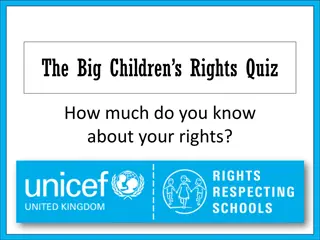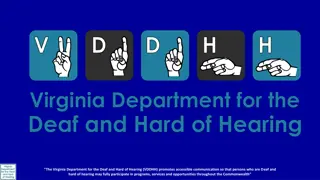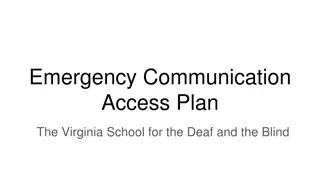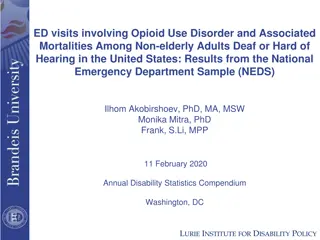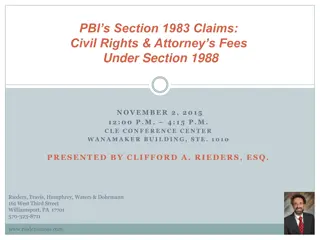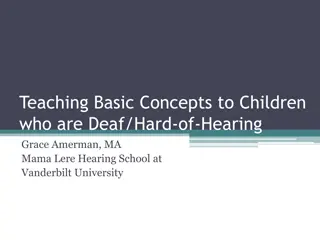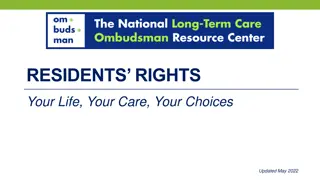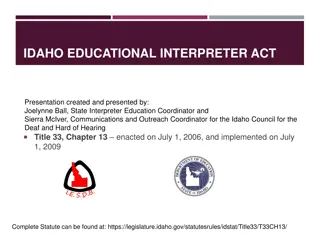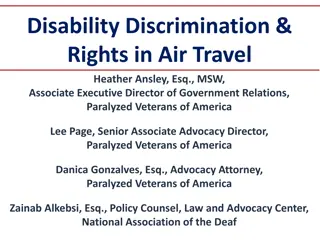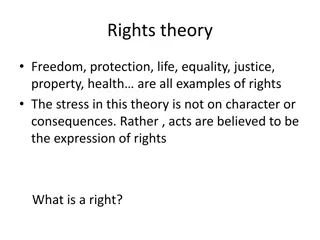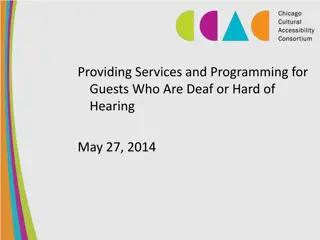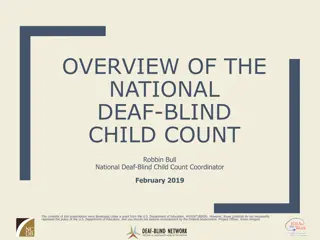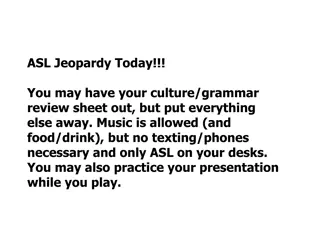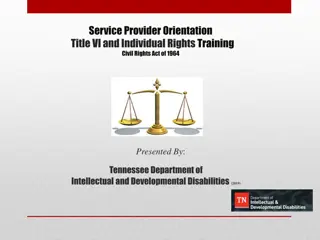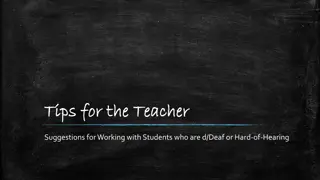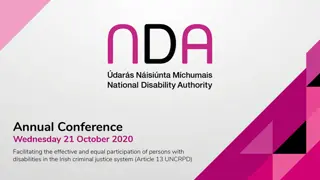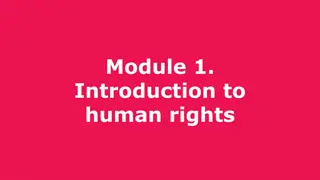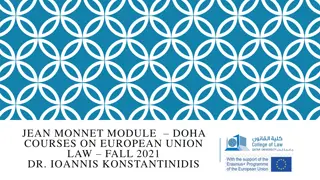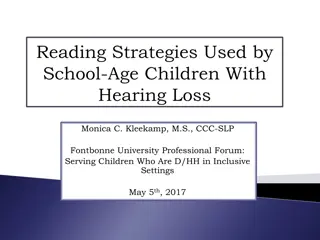Approaches to the study of Human Rights
The Marxist perspective on human rights emphasizes social rights over individual rights, viewing the full realization of self within society. Marx connects bourgeois society with human rights, highlighting how exploitation under capitalism alienates individuals. In contrast, the Third World perspect
5 views • 19 slides
Promoting Children's Rights in Education for Scotland's Learners
Raise awareness about Children's Rights, the United Nations Convention on the Rights of the Child, and how to embed them in education. Explore the importance of developing a culture that upholds rights-based practices and supports children in claiming their rights. Reflect on professional standards
1 views • 26 slides
Understanding Human Rights: Overview and Evolution
Human rights encompass various aspects such as human needs, generations of rights, individual status, and the indivisibility of rights. Dr. Anna Ledzi ska-Simon discusses the translation of human needs into rights, the historical evolution of rights across generations, individual rights according to
3 views • 17 slides
Understanding Human Rights in Queensland Government Work
The Human Rights Act of 2019 in Queensland outlines protected rights such as equality, freedom of expression, and fair trial. All public service employees must adhere to these rights, ensuring decisions and actions respect human rights. This act applies to everyone in the Queensland Government, with
2 views • 13 slides
Understanding the Basic Concept of Human Rights in Modern Jurisprudence
Human rights are natural and inalienable, essential for human life, based on universal principles. The concept of human rights is both simple and complex, requiring societal development and political will for implementation. Rooted in natural law theory, human rights have evolved from natural law to
1 views • 24 slides
Test Your Knowledge: The Big Children's Rights Quiz
Test your knowledge of children's rights with "The Big Children's Rights Quiz." The quiz includes true or false questions related to the United Nations Convention on the Rights of the Child, government responsibilities, the importance of rights, and the concept of Duty Bearers. Explore these thought
0 views • 24 slides
Legal Rights and Options for Regional Center Clients in California
This document discusses the legal rights and options available for adult regional center clients in California, focusing on clarifying their rights, reviewing support systems, exploring alternatives to conservatorship, and explaining the conservatorship process. It also covers children's and adults'
1 views • 35 slides
Reflection on Human Rights and Criminals
Explore the complex question of whether criminals should have human rights, delving into the distinctions between absolute and non-absolute rights, and the impact of child labor on human rights. Consider the removal of certain rights from criminals and engage in critical thinking exercises regarding
1 views • 19 slides
Civil Rights Training Overview for SMP Participants
This civil rights training presentation covers the goals of civil rights, discrimination, protected classes, examples of discrimination, components of civil rights compliance, and the importance of equal access for all participants in the SMP program. It emphasizes equal treatment, knowledge of righ
0 views • 36 slides
Virginia Department for the Deaf and Hard of Hearing (VDDHH) Programs and Services
The Virginia Department for the Deaf and Hard of Hearing (VDDHH) promotes accessible communication for individuals who are Deaf and hard of hearing to participate fully in programs, services, and opportunities throughout the Commonwealth. Services include Technology Assistance Program (TAP), Interpr
0 views • 15 slides
Enhancing Emergency Communication Access Plan at Virginia School for the Deaf and the Blind
Virginia School for the Deaf and the Blind (VSDB) is taking steps to improve its emergency communication access plan to ensure all individuals on campus, including those who are deaf, hard of hearing, blind, or vision impaired, have full access to emergency alerts and instructions. The plan includes
2 views • 14 slides
Challenges and Progress in 1920s American Civil Rights Movement
The 1920s in America saw significant changes in civil rights, women's movement, and prohibition. Civil rights encompass personal freedoms guaranteed by the U.S. Constitution, including freedom of speech, voting rights, and protection from discrimination. Violations of civil rights have occurred thro
1 views • 42 slides
Opioid Use Disorder and Mortality Among Non-elderly Deaf/Hard of Hearing Adults in the US
This study examined the risk of opioid use disorder (OUD) related emergency department (ED) visits and mortality among non-elderly adults who are deaf or hard of hearing (DHH) in the United States. Using data from the National Emergency Department Sample (NEDS), researchers found significant associa
0 views • 21 slides
Understanding Section 1983 Claims and Civil Rights Attorney Fees
Section 1983 of the Civil Rights Act allows individuals to seek redress for violations of their constitutional rights by persons acting under state law. This provision does not create new rights but provides remedies for existing rights. The history of Section 1983 dates back to 1871 and has been in
0 views • 27 slides
Providing Support for Deaf and Hard of Hearing Communities in the Black Country
Deirdre Maguire, a Community Development Officer at Zebra Access, works tirelessly to empower Deaf, DeafBlind, and Hard of Hearing individuals in the Black Country. The organization offers a wide range of services, including advocacy, community development, well-being programs, employment support, a
0 views • 11 slides
Teaching Basic Concepts to Deaf/Hard-of-Hearing Children
Teaching basic concepts is crucial for deaf/hard-of-hearing (D/HH) children as it forms the foundation for learning and thinking. These concepts—such as location, number, descriptions, time, and feelings—are best learned through concrete examples. D/HH students benefit from focused, one-at-a-tim
0 views • 12 slides
Evolution of Relay Services for Deaf and Hard of Hearing Individuals
The history of relay services for the deaf and hard of hearing dates back to the 1960s in the USA. Three pioneering deaf men played a significant role in establishing the first successful deaf telephone network, leading to the development of relay services as we know them today. This evolution enabl
0 views • 29 slides
Liberal Democracy and Citizenship: Rights, Duties, and Participation
Citizenship in liberal democracies entails equal rights, duties, liberties, and constraints, with a focus on civil and political rights. The entrenchment of these rights has been key in establishing popular sovereignty and individual autonomy. Civil rights, developed in the 18th century, centered on
2 views • 16 slides
Evolution of Human Rights: From Ancient Times to Modern Era
Throughout history, ideas of rights and liberty have evolved, leading to the recognition of universal human rights in the modern sense. The concept of human rights can be traced back to significant historical events such as the English Bill of Rights, the Virginia Declaration of 1776, and the French
0 views • 7 slides
Understanding Citizenship and Immigration in Modern Democracies
Citizenship, a fundamental institution of modern democracies, defines the relationship between individuals and the state through reciprocal rights and duties. However, citizenship has a dual nature, serving to both include certain individuals as citizens and exclude others. Immigrants residing withi
0 views • 21 slides
Human Rights and Citizenship Rights in Leisure, Sport, and Tourism: A Historical Perspective
This text delves into the intersection of human rights, citizenship rights, and leisure activities like sports and tourism. It explores the definitions, history, and declarations related to human rights, emphasizing the importance of allowing individuals the freedom to pursue leisure activities with
0 views • 20 slides
Challenges Faced by Deaf Women in Accessing Sexual and Reproductive Health Rights
Deaf women encounter significant obstacles in exercising their sexual and reproductive health rights, including gender-based violence, discrimination, and communication barriers. The European Union of the Deaf highlights critical issues such as systemic marginalization, lack of information in sign l
0 views • 8 slides
Understanding Residents Rights in Nursing Homes
Residents of nursing homes have additional rights beyond their rights as U.S. citizens. These rights, protected by federal law, ensure that residents are treated with dignity, have self-determination, make choices, receive information, and have access to communication and services. Exercising these
0 views • 40 slides
Overview of International Human Rights Law and Treaties
This comprehensive overview delves into the foundations of international human rights law, exploring key documents such as the Universal Declaration of Human Rights, the International Bill of Rights, and various human rights treaties addressing discrimination, women's rights, children's rights, migr
0 views • 27 slides
Project Proposal for Jeevan Gnanodaya School for the Deaf
Jeevan Gnanodaya School for the Deaf, part of Jeevan Gnanodaya Charitable Trust, provides education, vocational training, and support to speech and hearing-impaired children from poor rural backgrounds. The project aims to offer formal education till Class 12, including speech therapy, and industria
0 views • 16 slides
Idaho Educational Interpreter Act Overview
Idaho Educational Interpreter Act was enacted in 2006 to improve interpreting services in public schools for students who are deaf, hard of hearing, or deaf-blind. The act defines qualifications for educational interpreters, including specific criteria for Sign Language, Oral Transliterators, and Cu
0 views • 25 slides
Ensuring Rights and Accessibility in Air Travel for Passengers with Disabilities
Air travel is governed by laws like the Air Carrier Access Act and DOT Passenger Bill of Rights to prevent disability discrimination. Passengers have rights to dignified treatment, accessible information, assistance with disabilities, and resolving issues. Complaints can be filed for violations, inc
0 views • 16 slides
Understanding Rights Theory and its Significance in Society
Rights theory emphasizes the importance of fundamental rights such as freedom, protection, life, equality, justice, property, and health. It traces back to contract theories of politics and delves into the concept of natural and conventional rights, both positive and negative. The theory posits that
0 views • 5 slides
The Significance of Human Rights in the Modern World
Human rights are fundamental rights that belong to all individuals, are inalienable, indivisible, interconnected, and should be respected without prejudice. The Universal Declaration of Human Rights, adopted in 1948 after WWII by the United Nations, is a crucial milestone document emphasizing human
0 views • 5 slides
Providing Services for Guests Who Are Deaf or Hard of Hearing
This content provides valuable insights into serving guests who are deaf or hard of hearing. It covers terminology, communication methods, technology options, understanding identity, education opportunities, and effective communication tips. Emphasizing empathy, inclusivity, and practical guidance,
0 views • 26 slides
Enhancing Transparency in Human Rights Performance Measurement
This information focuses on initiatives like the Human Rights Measurement Initiative (HRMI) that aim to provide new data for researching and advocating human rights issues globally. The HRMI project, founded in 2015, collaborates with various stakeholders and is funded by philanthropic grants. It em
0 views • 19 slides
Overview of National Deaf-Blind Child Count
The National Deaf-Blind Child Count, led by Robbin Bull, provides a comprehensive historical review and collects demographics to assess state-level needs for children and youth with deaf-blindness. The initiative aims to ensure high-quality services, research, and personnel preparation for individua
0 views • 23 slides
Interactive ASL Jeopardy Enhancing Deaf Culture Knowledge
Engage in a fun and educational ASL Jeopardy game to enhance your understanding of Deaf culture, history, grammar, and fast facts. Test your knowledge on topics like Deaf education, prominent figures such as Gallaudet and Alexander Graham Bell, and important aspects like name signs. Discover more ab
0 views • 54 slides
Inclusive Settings for Deaf Pupils: UK Experience and Challenges
The UK has a history of deaf education dating back to 1825, with various models developed over the years for integrating deaf pupils into mainstream settings. However, challenges persist in providing specialized language and communication support for deaf children, impacting their learning and socia
0 views • 16 slides
Understanding Human and Civil Rights in DIDD Services
Protecting the rights of individuals receiving Department of Intellectual and Developmental Disabilities (DIDD) services is essential. This training covers Title VI and individual rights under the Civil Rights Act of 1964, emphasizing equality and access to programs regardless of race, color, sex, d
1 views • 31 slides
Effective Strategies for Supporting Deaf or Hard-of-Hearing Students
Explore valuable tips for teachers working with students who are deaf or hard of hearing, including environmental recommendations like flexible seating and minimizing noise distractions. Discover teaching modification suggestions such as gaining attention, using visuals, and facilitating participati
0 views • 29 slides
Supporting Deaf People's Access to Justice: Insights from Legal Professionals
This research project conducted by Dr. Bronagh Byrne from Queen's University Belfast explores the perspectives and experiences of legal professionals in supporting Deaf individuals in accessing the justice system. The study aims to identify areas for improvement in supporting Deaf people, highlighti
0 views • 16 slides
Understanding Human Rights: Module 1 Overview
This module serves as an introduction to human rights principles, instruments, and monitoring mechanisms. It covers the definition of human rights, the Universal Declaration on Human Rights, key principles, and state obligations. Human rights are universal legal guarantees that protect individuals a
0 views • 21 slides
EU Charter of Fundamental Rights and European Convention on Human Rights Overview
The course module on European Union Law in Doha focuses on the EU Charter of Fundamental Rights and its relationship with the European Convention on Human Rights. It covers topics such as the EU's accession to the Convention, external action on human rights, and the differences between the Charter a
0 views • 26 slides
Understanding Reading Abilities in Deaf/Hard of Hearing Children
Monica Kleekamp discusses the delayed reading abilities of children who are deaf/hard of hearing and explores the correlation between reading levels and phonological awareness. Different approaches to reading instruction and research questions on reading strategies, narrative comprehension, and impa
0 views • 21 slides





